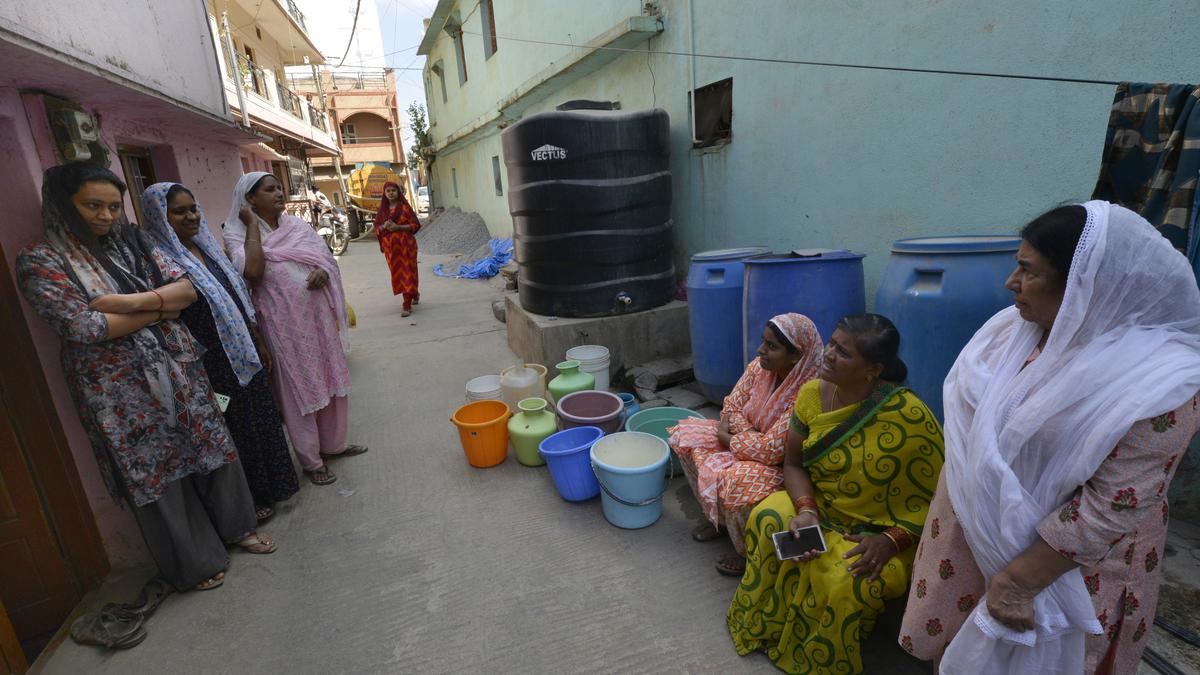
A year when Bengaluru faced acute water crisis and took many remedial measures
The Hindu
Bangalore faced severe water crisis in 2024, implementing conservation measures, aerators, water rationing, and groundwater regulations.
After a failed monsoon the previous year, the summer of 2024 saw the city face one of the worst water crisis in recent times. Despite a tiff with Tamil Nadu over sharing the Cauvery river, the core areas served by it remained largely better off, even as the outer zones dependent on borewells and tankers had a tough summer. The city took several water conservation and rationing measures to tide over the crisis, which have now been institutionalised.
The Bangalore Water Supply and Sewerage Board mandated aerators and flow restrictors that can cut wastage by up to 75% for all public taps. BWSSB Chairman V. Ram Prasath Manohar said each subdivision was given targets and a total of 11.5 lakh taps had been fitted with aerators till date. Board also introduced water rationing and cut supply to bulk users by up to 20%. This has since been been restored.
The other key initiative that seems to have had some traction was the regulation of groundwater use. BWSSB banned digging of any borewell in the city without their permission. Contravention of the rule can attract a criminal case. Based on the board’s complaints, 86 criminal cases were filed. BWSSB also started a groundwater monitoring cell.
During the crisis months, the board mandated that all big construction projects and industries, wherever possible, have to use treated wastewater and began supplying it in tankers. Its sale rose from 60,000 litres a day to 60 lakh litres per day in over a month. But with rains, the demand fell. Now the board is able to sell around 35 lakh litres per day.
Meanwhile, BWSSB has proposed a project to provide 4 MLD of treated wastewater to over 13,000 units in Peenya Industrial Area. The proposal is yet to be approved by the government. But the board is already preparing to carry out similar projects in other industrial hubs of the city.
The year came to an end with the commissioning of Cauvery V Stage that draws 775 MLD of water more from Cauvery to supply drinking water to outer zones, which will hopefully free these areas from dependence on borewells and water tankers. However, the response to avail new connections has been slow and tepid, due to several reasons, including high charges for the same. The board hopes the demand will pick up during the coming summer.
Even as experts have argued that drawing more water from a non-perennial river shared by two States is not feasible in the long run, the board has commissioned a detailed project report for Cauvery VI Stage to supply water to towns around Bengaluru.

The Cubbon Park administration has said that any event organised inside the park with over 20 participants need prior permission from the Horticulture Department and in some cases, even permission from the police. This comes after the row over organisers of Cubbon Reads, a reading community, being detained on Saturday, as several turned up for a Secret Santa party.










